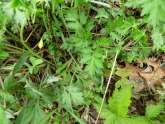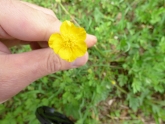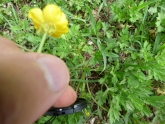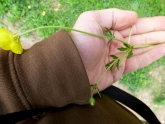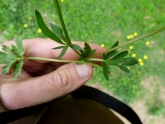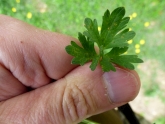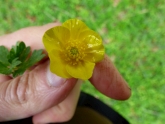|
May 24, 2012
|
Southeastern, New Hampshire
|
There were a number of things that made this a very difficult identification and
I’m not 100% sure it is accurate. I was taking pictures right outside of
someone’s apartment and I think that were wondering what the *!*$(@ I was
doing! Also, the key led me to information on flower parts and I can’t pick
out flower parts very well. Fortunately, it had the obvious look of a buttercup:
- Petals inserted below the ovary.
- No stipules.
- Flower has multiple distinct and dissimilar parts.
The key was followed in this way:
- Plants terrestial (not aquatic).
- Some of the leaf blades are lobed or compound.
- Leaves +- monomorphic (relatively similar) and basal leaves are not simple, but are
compound.
- Larger leaves are compound (have unwinged petiolules).
- Petals 6 - 15 mm long.
- Sepals reflexed (bent backwards), not spreading. Every flower had its sepals
reflexed. According to the text, it is supposed to be reflexed 2-3 mm above the base
of the sepal, but I do not see that in this plant or any pictures I can find. But
it is not Creeping Buttercup (Ranunculus repens) because the sepals are not
spreading.
- Stems thickened into a bulb at the base. See the last two pictures in the table
below. The flower petals are supposed to be 9-13 mm long. The one I measured was
8-1/2 mm long ... close enough.
|
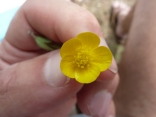
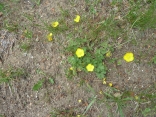
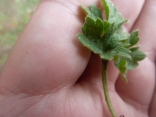

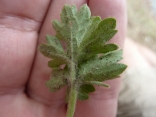
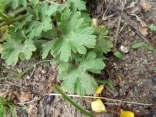
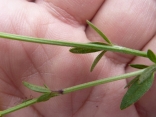
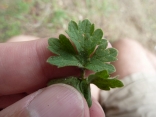
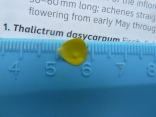
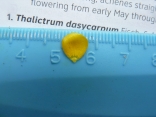
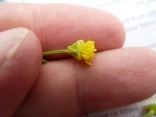

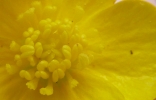

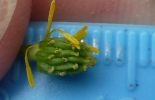
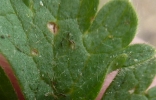
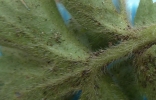
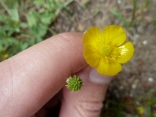

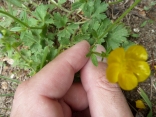
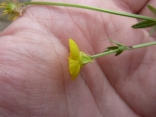
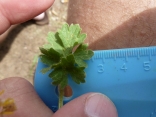
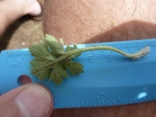
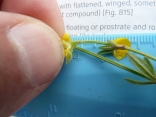
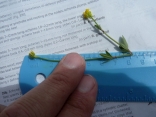
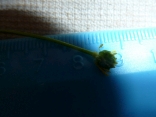
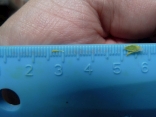
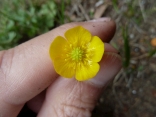
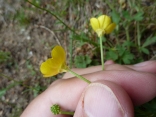
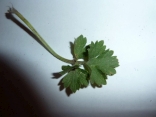

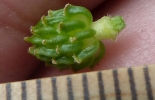
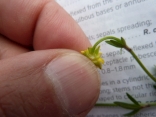
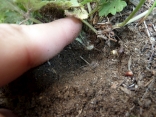

|



































